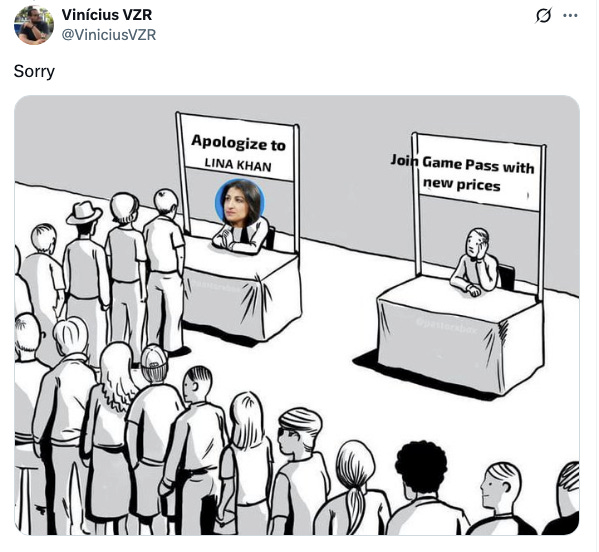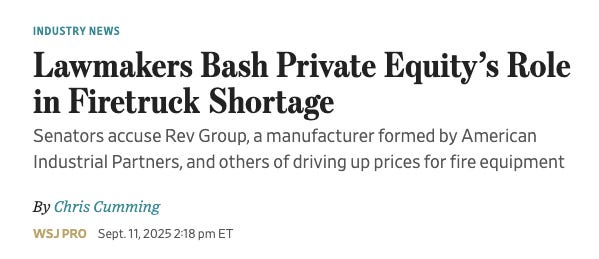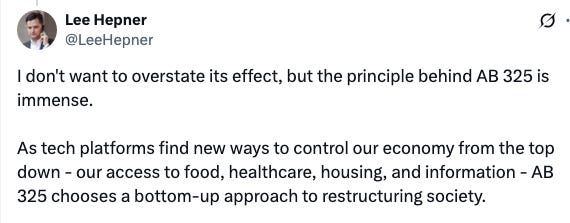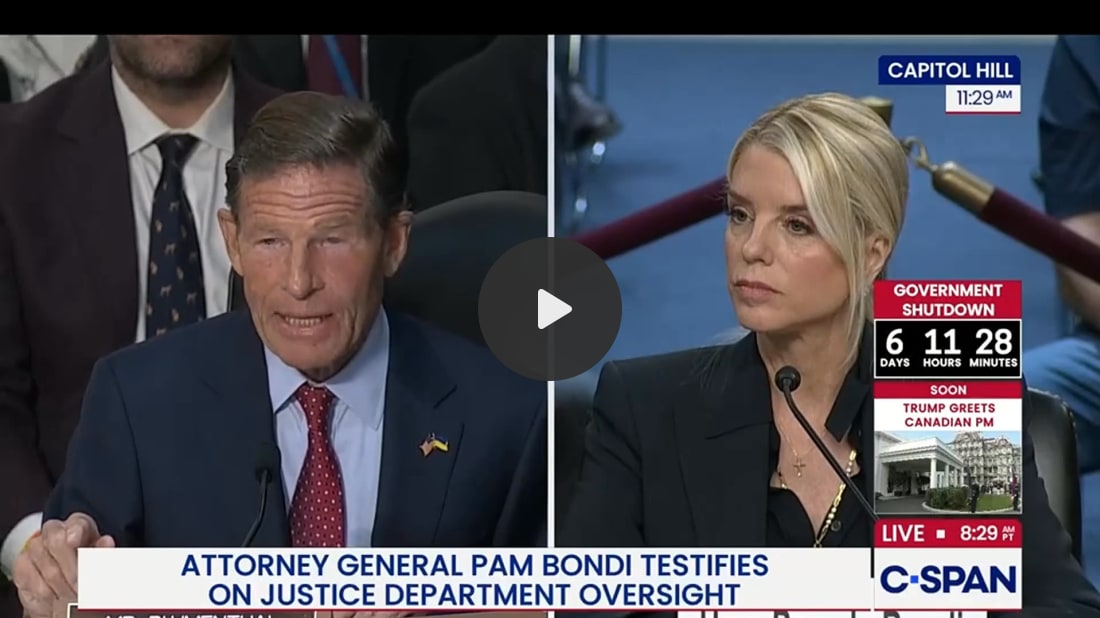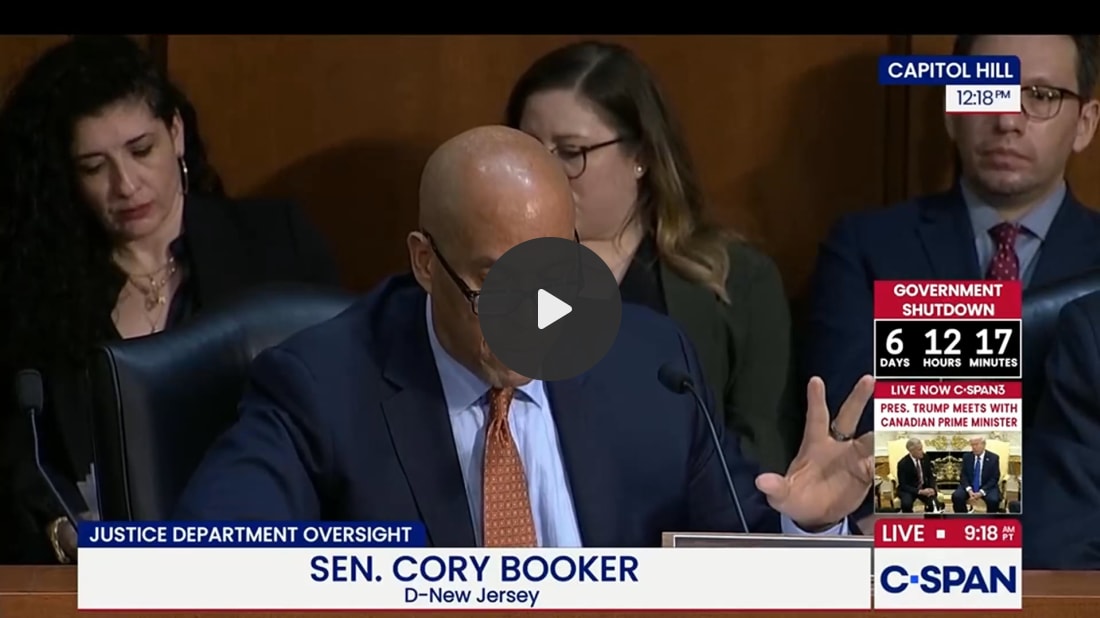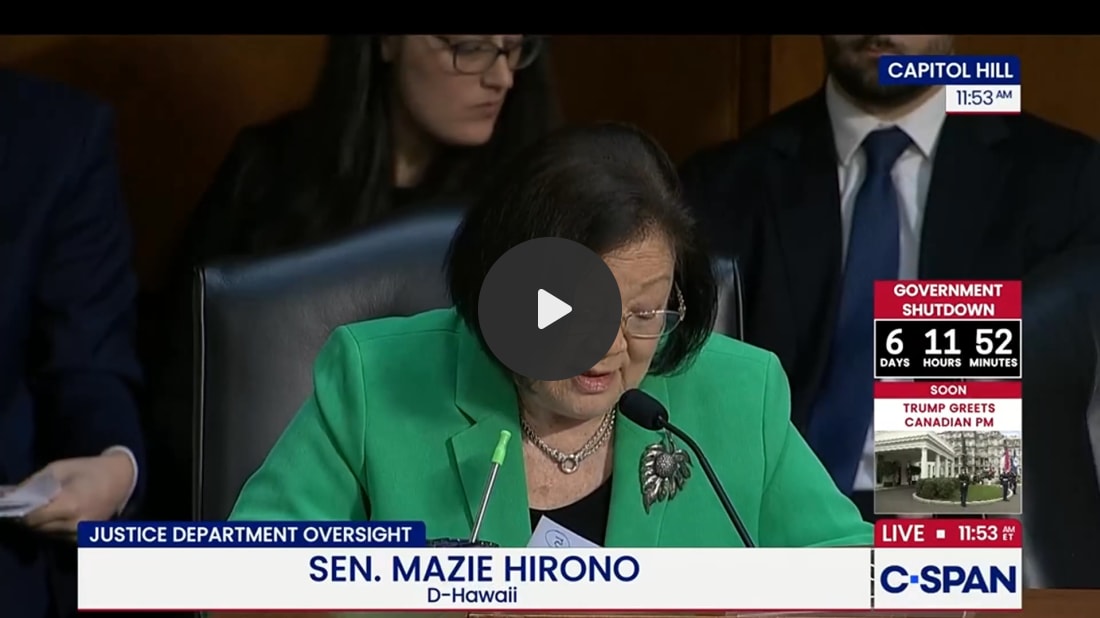How to Overturn an OligarchyWe've had some real victories. The FTC is looking into fire truck monopolization, California passed a law against coercion machines, and lobbyists took a big loss last month. America is waking up.In 1815, John Adams wrote a letter to Thomas Jefferson about the American Revolution. “What do We mean by the Revolution?” he asked. “The War? That was no part of the Revolution. It was only an Effect and Consequence of it. The Revolution was in the Minds of the People, and this was effected, from 1760 to 1775, in the course of fifteen Years before a drop of blood was drawn at Lexington.” Adams cited the legislative records, the pamphlets, newspapers, and the public debates “by which the public opinion was enlightened and informed concerning the Authority of Parliament over the Colonies.” What Adams wrote has always stuck with me. Those guys fought a war against the most powerful empire in the world, and won, and they did so because they convinced each other a decade earlier, during deeply distressing economic times, that independence from a king was critical to their wellbeing and dignity as free people. And the revolution was the act of convincing, of gaining the self-confidence to declare independence, far more so than the violence of a war. They imagined a new society before they overthrew the old. I’ve been running BIG for six years, and that’s how I think about this newsletter and our movement. Liberty from concentrated power starts in our own minds, before it happens anywhere else. I believe in public education, because I believe in the public. I never expected to be writing a newsletter on monopoly power; I started writing BIG because I thought it would be a useful way to promote my book Goliath, which was a history of fights over monopoly in the 20th century, and a tacit way to explain to Democrats that President Obama had turned his back on traditional democratic principles. But it turns out there’s a hunger for writing and analysis of how our commercial society works, so I kept it going. Since the start of BIG, we’ve covered a pandemic, two Presidential elections, a revival of antitrust law, and several major bank bailouts. Despite some very important victories, the trends have been bad in general. The number of billionaires in America has increased by about 25%. The economy is now dependent on consumer spending by the wealthy, as well as an obvious AI bubble with its direction concentrated in the hands of between ten and twenty men. There are many reason for this oligarchical control, but a key one is that since the 1970s, the people have allowed it. We lost our skepticism towards concentrated power, and became deeply confused about why our society is less free. But I am going to offer a reason for optimism. I believe the American people are learning about the real sinews of power. And there’s data backing that up. Since 2006, every election but one has seen a change in one or both houses of Congress, or the Presidency. And popular faith in big business has collapsed. One law firm that advises on jury selection does polling, and recently found that “the jury landscape has fundamentally shifted. 72% of Americans now see their role as sending messages to corporations—a dramatic increase from 2022.” Americans are seeing the corruption of their society, and they don’t like what they see. That’s good. And they are now realizing that one center of the problem is corporate power. Such a shift in the mind of the public doesn’t happen all at once. There are over three hundred forty million Americans, each with our own lives and interests and communities. But over the past six years, we’ve been watching in real time, like tiny light bulbs turning on, as different communities learn to see power and coercion they had formerly imagined was part of nature. Over the past month, it happened to “row crop” farmers, angrily watching as their government bails out Argentina’s soybean exporters while their input costs go up. It happened to video gamers last week, when Microsoft did to them what it said it would not: raise prices and lay off game developers after buying Activision. Lots of gamers believed Microsoft was a good actor, now they do not. The lightbulb went on. A few years ago, it was people in the cheerleading world, who were dealing with the monopoly Varsity Brands. Cattle ranchers, pharmacists, dentists, chicken farmers, Hollywood producers and talent, Uber drivers, and app developers are starting to get it on a fundamental level. Anti-monopolists in the defense world, metal producers, and even anti-corruption businesses are emerging. At BIG, we make an argument about politics and commerce. We do the podcast Organized Money, we run Big Tech on Trial to cover the antitrust cases in detail. What we say is garbed in technocratic clothing around markets, but the basic principle is a simple and eternal truth. Arbitrary coercion is immoral. And that principle is enormously powerful, especially when matched to the rule of law. Today, the anti-monopoly language finally exists for the dissatisfied multitude to describe the world they are seeing in useful ways. We haven’t built a politics designed to take this energy and turn it into a majority, but we will. As John Adams noted, revolutions start in the minds of the people. Ok, so now I want to discuss three small victories that the community around BIG has helped foster. In 2021, I decided to accept paid subscriptions, though nearly all the content is free. So part of what we’ve been able to do is because we have a small amount of capital. Here’s victory number one: 1) Firefighters Get Mad at MonopoliesLast year, BIG brought on antitrust lawyer and researcher Basel Musharbash to do investigative reporting. In January, BIG published a piece on how a private equity engineered fire truck roll-up worsened the costs of the Los Angeles fires. In September, a Senate subcommittee led by anti-monopoly Republican Senator Josh Hawley and Democrat Andy Kim completed an investigation, and held a hearing titled “Sounding the Alarm: America’s Fire Apparatus Crisis.” Executives from REV Group and Pierce Manufacturing testified, as did a fire chief and the President of the International Association of Fire Fighters. The New York Times and Wall Street Journal reported on it, and the Federal Trade Commission is now probing the industry. I’m guessing that negotiations over fire apparatus will become slightly easier, and those firms are likely seeing the writing on the wall. (2) Ending the Coercion Machine EconomyThe second victory happened yesterday, when the Governor of California signed legislation to stop the coercion at the heart of a lot of our economic transactions. According to this new law, it is now illegal to coerce someone into using a pricing algorithm based on non-public data. California is the fourth largest economy in the world, so a state law matters here in a way that it doesn’t in other states. And while I’m not entirely sure how important this new law will be, it is a big ideological achievement, and I’m cautiously optimistic that it will be quite meaningful. Here’s why. The key change in the 1970s engineered by Chicago’s law and economics school was to eliminate any sort of meaningful power analysis in antitrust law, in favor of an efficiency analysis. Older cases from the 1950s and 1960s were full of statements saying that suppliers and buyers were not allowed to “coerce” or “force” companies through tying or other forms of restraints to adopt pricing choices. There’s a Supreme Court case in 1948 on antitrust consent decrees discussing the difference between coercion and persuasion. (“He may not go beyond that and use something that is within his power to use as a club to coerce the person to accept that which he has to offer.”) The Chicago School revolution got rid of this framework, under the premise that efficiency mattered, not coercion, fear, or the liberty to trade. If you were coerced by a dominant supplier, but an economist showed there was no loss of output, then that was just vigorous competition. Gradually, the notion that the antitrust laws protect business from economic violence fell away. The result is an economy of coercion machines, from Amazon to pharmacy benefit managers to RealPage. Now, tech platforms and data brokers open up an entirely new mechanism to restrict trade and harm citizens. To put it differently, algorithms based on non-public data are a form of price-fixing where a tech platform or data exchange secretly organizes a conspiracy throughout an industry. Gathering control of data, and then forcing others to set prices based on that data, is how powerful actors now seem to be operating in our economy, in industries as varied as renting apartments to pvc pipe to hotel room prices. Of course, the law will be tested in court, as terms like “coercion” need to be heard by judges and juries to determine how they apply. But the old case law is going to come back, because that’s where the term “coercion” is often used. Opponents of the law gave the game away when they claimed that “coercion is not an antitrust concept.” Oh but it is. They just wish it weren’t so. One of the key people working on this legislation, antitrust lawyer Lee Hepner, joined our podcast Organized Money back in May to talk about the “Wild World of Surveillance Pricing.” There are many ways to discuss this new law, perhaps as an attempt to regulate platforms as utilities, or perhaps as a way to end new forms of systemic price-fixing. But it is fundamentally a statement about what it means to live in free society. We don’t care if an economist says that you have been coerced in a way that’s good for for the market. It’s still illegal, because America is a free country. (3) Is Our Politicians Learning?The final victory I’ll discuss is that we were able to push back successfully on the corrupt lobbyists destroying the Antitrust Division and kneecapping the Assistant Attorney General for Antitrust, Gail Slater. Slater has not been good, but she has maintained the monopolization cases against Google, Ticketmaster, Apple, and RealPage. That’s significant. Our excellent court reporter, Jerry Cayford, has been doing blow-by-blow accounts of the latest Google antitrust remedy trial, which just finished yesterday. Slater is the reason it’s still happening. There’s a lot more, but I just want to say, thank you for reading and subscribing and sending notes and tips. It may seem a discouraging time, but that is because we have not yet re-imagined what is possible. As Adams put it, “The Revolution was in the Minds of the People” before it became the war written in the history books. They had to imagine a new world before they could jettison the old. That is our task. That is how to overthrow the oligarchy. And dark though it may be today, as those lightbulbs keep turning on in the minds of the people, the country will get brighter. Thanks for reading! Your tips make this newsletter what it is, so please send me tips on weird monopolies, stories I’ve missed, or other thoughts. And if you liked this issue of BIG, you can sign up here for more issues, a newsletter on how to restore fair commerce, innovation, and democracy. Consider becoming a paying subscriber to support this work, or if you are a paying subscriber, giving a gift subscription to a friend, colleague, or family member. If you really liked it, read my book, Goliath: The 100-Year War Between Monopoly Power and Democracy. cheers, Matt Stoller This is a free post of BIG by Matt Stoller. If you liked it, please sign up to support this newsletter so I can do in-depth writing that holds power to account. |

